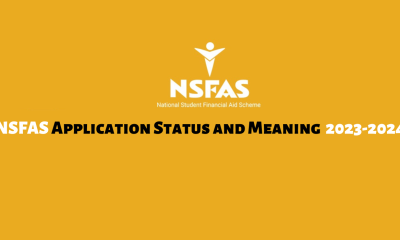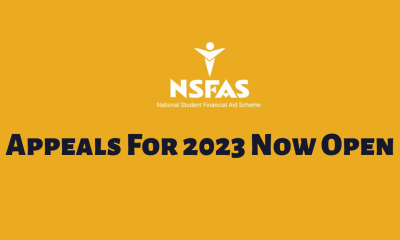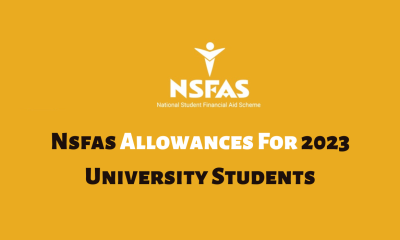Education
An increase in funding is expected for TVET colleges

TVET colleges in the country receive substantially less funding than public universities. A number of plans are currently being developed by the Department to change this. TVET college programs receive considerably less funding than public university programs, putting them well behind schedule in reaching the National Development Plan’s targets.
An increase in funding is expected for TVET colleges
As of now, the state can only fund 480,686 TVET enrolments. Approximately 13% of the TVET enrolments for the 2023/24 academic year will not come from the state’s baseline funding. TVET colleges will need to collect the balance of these enrolments through student fees or write them off.
TVET enrolments have declined by almost 5% since 2021/22. There are two main reasons for this
- the impact of the COVID-19 pandemic on the state budge, and
- budget cuts by the National Treasury on the TVET budget allocation
In order to meet NDP targets, the Department is aiming to increase TVET college enrollment to 2.5 million by 2030, but the decline in enrolment over the last few years, along with the funding gap between universities and TVET colleges, puts them behind schedule.
The South African College Principals Organisation (SAPCO) has established a Task Team to work on the following potential expansion strategies in order to reach this target:
- assessment of the available excess infrastructure, such as classrooms, to accommodate additional enrolments
- assessment of the capacity of colleges to offer hybrid teaching and learning or distance learning
- acceleration of initiatives for digitising assessments and online digital content development
- assessment of the human resource (lecturers) capacity to accommodate the growth of the sector
Physical infrastructure and human resources are both costly and time-consuming, according to the Department. NDP’s timeline is likely to be delayed as a result of this approach.
As of now, the Department is working on developing a digitisation strategy, and its initial phase will be funded from the current infrastructure budget. To fund the full phase, the Department will submit the Budget for Infrastructure (BFI) proposal to National Treasury. The initial phase of the project will take place during the 2023 academic year, and the full phase will take place during the 2024 academic year.
Furthermore, the Department realizes that they should not only focus on funding and expanding the TVET sector, but also on ensuring the quality of education they deliver. Among the elements of this integrated approach should be;
- ensuring that there are costs and operational efficiencies regarding the utilisation of current resources by colleges
- improving governance processes at colleges to attract external funding
- accelerating the curriculum transformation process
- Institutionalising skills levy funding for skills programmes offered by colleges
- strengthening relationships with private colleges
- exploring opportunities evident from the gap created by Universities of Technologies, as several are currently operating as traditional universities
A TVET college and a CET (Community Education and Training) college are included in this project.

-

 sassa6 months ago
sassa6 months agoPost Office Blocked Sassa Card After Suspected Fraud
-

 blog6 months ago
blog6 months agoNSFAS Application Status and Meaning 2023-2024
-

 sassa6 months ago
sassa6 months agoYou Can Now Apply for a Basic Income Grant of R999
-

 NSFAS News6 months ago
NSFAS News6 months agoNsfas Appeals For 2023 Now Open
-

 sassa6 months ago
sassa6 months agoFinally New Grant of R999 for Basic Income Introduced
-

 NSFAS News6 months ago
NSFAS News6 months agoNsfas Allowances For 2023 University Students
-

 sassa8 months ago
sassa8 months agoSassa Grant Old Age Pension Payment Date for August 2023
-

 sassa6 months ago
sassa6 months agoGood News New Grant of R999 for Basic Income Introduced




